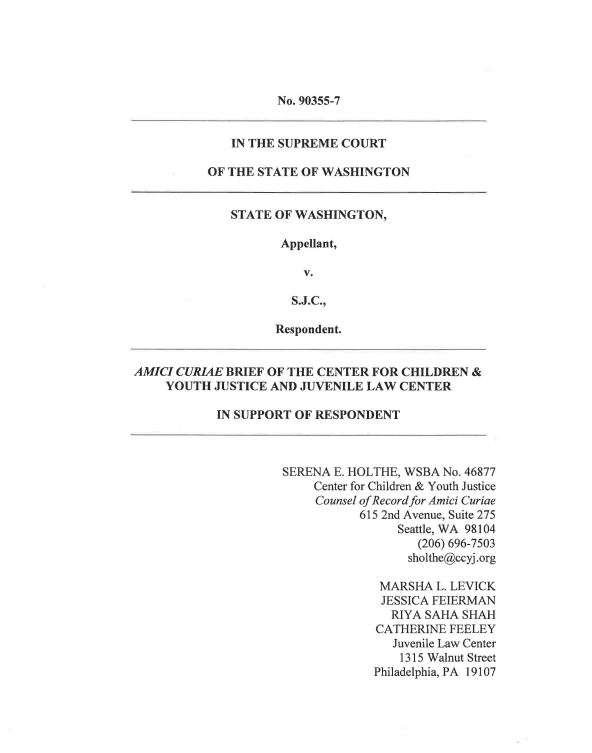
Summary of Argument
This Court has repeatedly held that juvenile court records may be sealed, and has rejected the argument that Article I, Section 10 ofthe Washington Constitution applies to juvenile records. In re Lewis, 51 Wn.2d 193, 198, 316 P.2d 907 (1957); Seattle Times Co. v. Ishikawa, 97 Wn.2d 30, 36, 640 P.2d 716 (1982) (en bane) [hereinafter Ishikawa]. The unique status of adolescents, and the unique rehabilitative purposes of thejuvenile justice system, weigh in favor of protecting juvenile records. Lewis, 5l Wn.2d at 198. The parties have presented the arguments under Washington law.
Amici write separately to emphasize that this Court's recognition o f the distinct characteristics o f youth, and the importance o f sealingjuvenile records, is further supported by the United States Supreme Court jurisprudence on children and national research on the importance of confidentiality ofjuvenile court records.